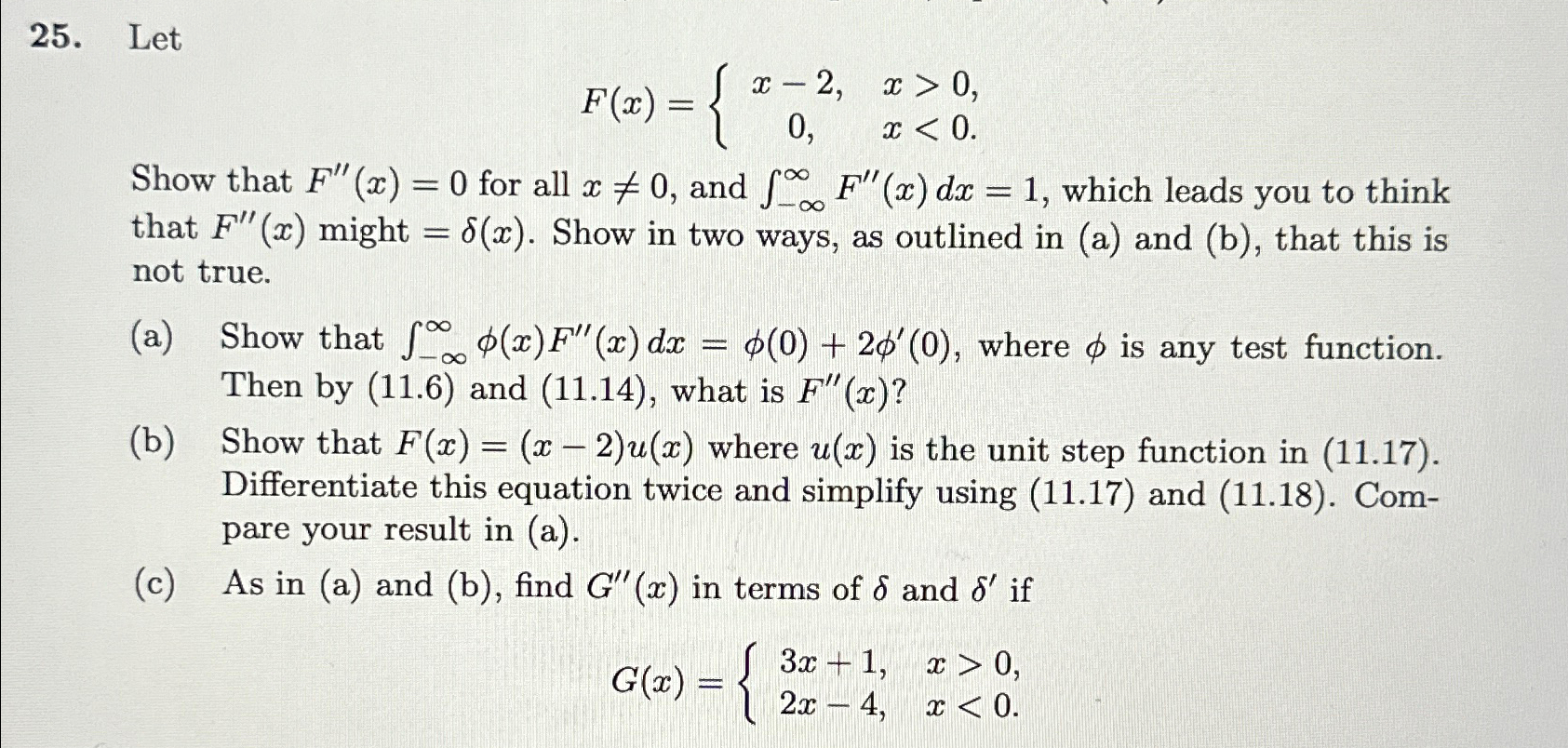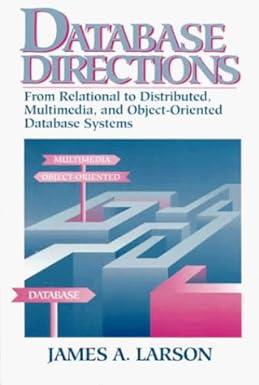Answered step by step
Verified Expert Solution
Question
1 Approved Answer
Let F(x)={(x-2,x>0),(0,x Show that F^('')(x)=0 for all x!=0 , and int_(-infty )^(infty ) F^('')(x)dx=1 , which leads you to think that F^('')(x) might =delta
Let\
F(x)={(x-2,x>0),(0,x\ Show that
F^('')(x)=0 for all
x!=0, and
\\\\int_(-\\\\infty )^(\\\\infty ) F^('')(x)dx=1, which leads you to think that
F^('')(x) might
=\\\\delta (x). Show in two ways, as outlined in (a) and (b), that this is not true.\ (a) Show that
\\\\int_(-\\\\infty )^(\\\\infty ) \\\\phi (x)F^('')(x)dx=\\\\phi (0)+2\\\\phi ^(')(0), where
\\\\phi is any test function. Then by (11.6) and (11.14), what is
F^('')(x) ?\ (b) Show that
F(x)=(x-2)u(x) where
u(x) is the unit step function in (11.17). Differentiate this equation twice and simplify using (11.17) and (11.18). Compare your result in (a).\ (c) As in (a) and (b), find
G^('')(x) in terms of
\\\\delta and
\\\\delta ^(') if\
G(x)={(3x+1,x>0),(2x-4,x 
Step by Step Solution
There are 3 Steps involved in it
Step: 1

Get Instant Access to Expert-Tailored Solutions
See step-by-step solutions with expert insights and AI powered tools for academic success
Step: 2

Step: 3

Ace Your Homework with AI
Get the answers you need in no time with our AI-driven, step-by-step assistance
Get Started


